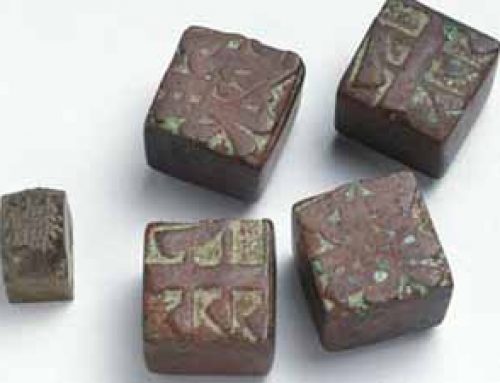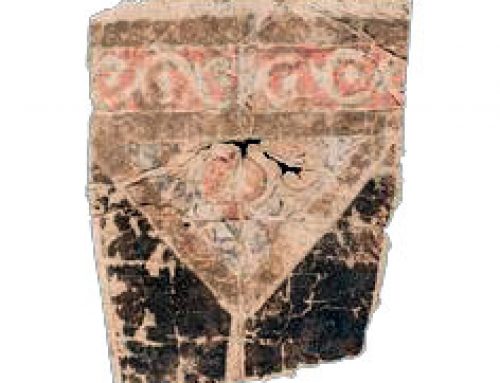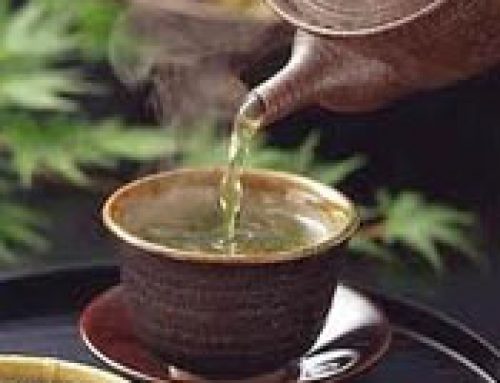
Chinese medicine: a Chinese village doctor treating a man by burning herbs on his back (Song Dynasty, ca. 950 AD., now in National Palace Museum, Taiwan)
What’s the earliest Chinese medical book?
Doctors wrote the earliest known Chinese medical writing, The Recipes for Fifty-Two Ailments, about 186 BC, around the beginning of the Han Dynasty.
History of medicine
The Han Dynasty
All our China articles
The recipes suggest chanting spells, herbal medicines, lancing (cutting the skin open) and cauterization (burning the flesh).
Possession by demons
In this book, Chinese medicine was supposed to cure things like warts and snake bites and possession by demons (mental illness).
Indian medicine
Egyptian medicine
Chinese religion
Another book of Chinese medicine: the Neijing
By about 100 BC, China had become a major center of medical research. It was the home of some of the world’s best doctors. These doctors wrote the Neijing, a book about Chinese medicine. The book organized and explained all of their treatments. The Neijing argues that earlier ideas about demons making you sick are wrong.
What are yin and yang and qi?
According to the Neijing, you get sick when the yin and yang of your body are out of balance. Lifestyle choices like bad food, not exercising, stress, and your environment can knock you out of balance. This imbalance blocks your qi, your life-force. It’s like Herophilus‘ idea of pneuma.
More about yin and yang
How did Chinese doctors treat patients?
Doctors used a combination of acupuncture (using China’s newly invented steel needles), moxibustion, herbal medicines, and exercises to restore your balance.
More about acupuncture needles
(You might want to compare this to the Greek idea of four humors that developed in the 400s BC. It’s possible that Chinese doctors knew about these Greek ideas, from travelers along the Silk Road, or the other way around.).
More about Greek medicine
Another Han Dynasty doctor, Huo Tuo, apparently combined wine and hashish as anaesthesia for surgery. Sadly, the medical books Huo Tuo wrote have all been lost. Possibly Huo Tuo got medical information from Buddhist missionaries from India.
Did Chinese doctors do human dissections?
Like Herophilus in Egypt 300 years earlier, at least one Han Dynasty doctor, about 23 AD, dissected a dead person to find out more about the human body.
More about Herophilus’ dissections
Ge Hong discovers a treatment for malaria
Chinese doctors figured out many ways to treat sick people. They used many medicines made of different herbs and tree barks. Though some of these were just guesses, other medicines worked well. By the 300s AD, Ge Hong was the first doctor in the world to write about a good medicine for malaria.
More about malaria
A third book of Chinese medicine: Sun Simiao
During the T’ang Dynasty, in the 600s AD, a doctor named Sun Simiao wrote more medical books. Sun listed thousands of recipes for different medicines, and also discussed how doctors should behave. He said, “A great doctor should not pay attention to status, wealth or age. He shouldn’t ask whether the patient is beautiful or ugly, whether he is an enemy or friend, whether he is Chinese or a foreigner, or finally, whether he is uneducated or educated. A doctor should meet everyone on equal grounds. He should always treat patients as if they were his own family.”
Clean water and toilets help to save lives
About this time, Chinese cities began to have pay toilets, which helped to keep poop out of the streets so that fewer people caught dysentery. By the 1100s, under the Song Dynasty, there were even a few free public toilets.
More about sewage in China
Chinese doctors use inoculation against smallpox
Chinese doctors learned from Indian doctors about inoculation against smallpox, and by the 1500s AD, under the Ming Dynasty, Chinese doctors were inoculating many people to prevent smallpox from spreading.





wow!
Do you know anything about how opium had a positive impact on china
Opium is a very powerful medicine and it worked well for lots of things: doctors used opium to stop diarrhea and coughs, and to help people who were in pain, and to do operations without people dying of shock from the pain. You can read more about opium here: https://quatr.us/central-asia/opium-world-history-medicine-drugs.htm
But in China, opium was illegal. They didn’t want people doing drugs. So in China doctors didn’t use it much. Instead, the British government used opium as a way to force China to trade with them. So opium made China more violent and much poorer. You can read more about the Opium Wars here: https://quatr.us/china/opium-wars-history-china-1800s.htm
when was this page first published?
Citation information is below the article, above the comments.
thx for the help it was something new to me
Hi James! You’re very welcome!
this really helped me with a final project. Thanks!
I’m glad we could help, Chris! Good luck with your project!
That is a amazing history
Thanks, Katlyn!